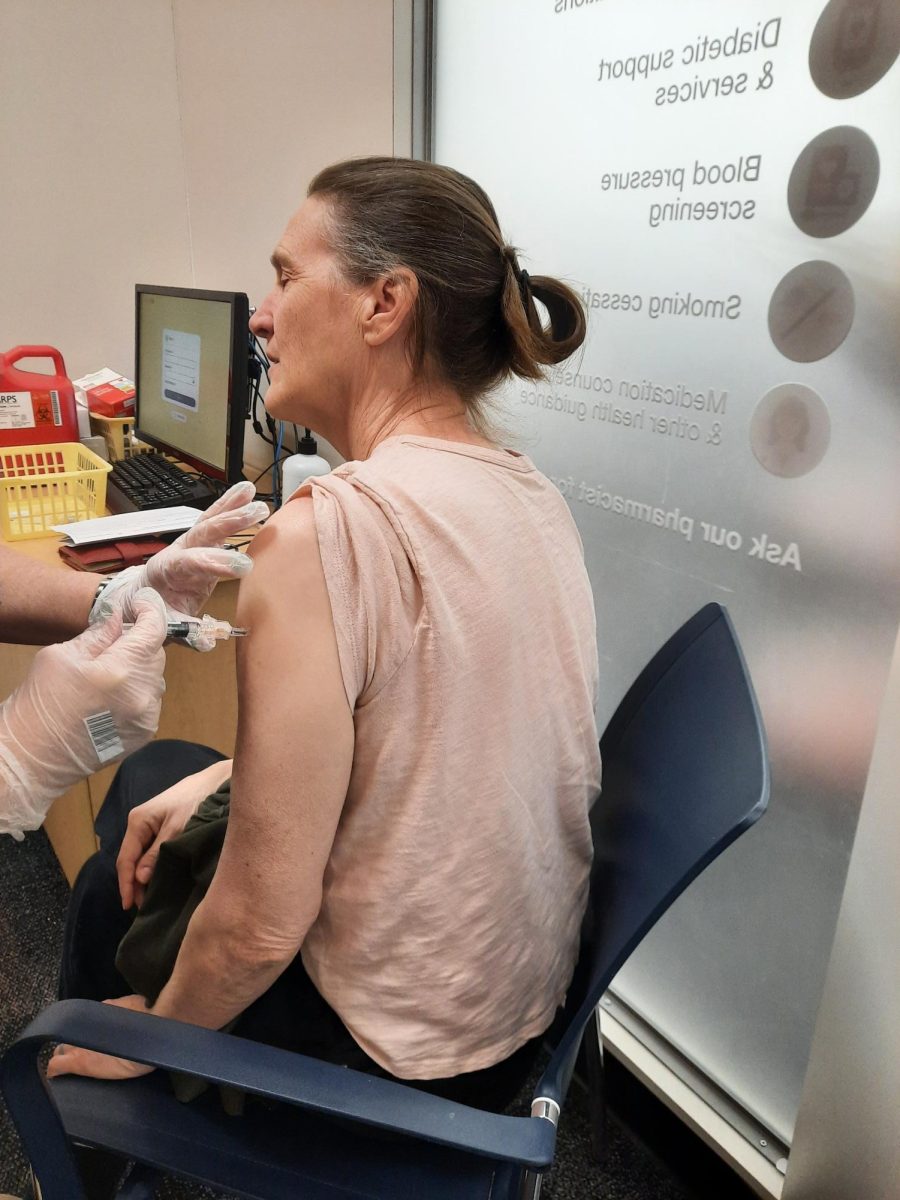People continue to cite religion as a means not to get vaccines despite their safety and effectiveness in disease prevention.
Vaccination is one of the greatest public health achievements of the 20th century, reducing infectious diseases and saving millions of lives, said Michelle Boose, medical director at UNCA health and counseling center, in an email.
“There is this conflict between the general public and epidemiologists,” said Fabrice Julien, UNCA assistant professor of health and sciences. “Part of the struggle is centered around some health communication struggles.”
According to Pew Research Center analysis, people still refuse to get required injections based on religious influence.
“I’ve often thought that epidemiology or public health shouldn’t be controversial, but it is controversial. I think part of the reasoning behind that is there is a translation issue that exists. The science just isn’t understood,” Julien said.
According to Boose, vaccines are overwhelmingly safe and effective. Before being approved for public use, vaccines undergo extensive clinical trials to evaluate safety and efficacy.
After approval, vaccines continue to be monitored by agencies such as the CDC, FDA, and WHO to ensure continuing safety and effectiveness, Boose said.
“I think education is paramount and I wish there was greater scientific literacy,” said UNCA department of health sciences faculty member Jason Wingert. Wingert teaches many topics in health including anatomy and physiology.
“I think if we were a more scientific literate society, more people would have an understanding and appreciation for vaccines,” Wingert said.
Wingert said he is not in favor of vaccine mandates, but rather in favor of giving people information they need to make informed decisions about vaccines. He said if a person has a religious reason for not taking a vaccine, their decision needs to be respected as well.
“I take the stance that I have to respect this person’s interpretation of their religious views. From a scientific standpoint, I might question that thinking because I’ve tried to understand the severity of some of these illnesses we’re protected against with vaccines,” Wingert said.
According to Wingert, the more information people have about the severity of illnesses, the more able they are to make decisions.
“During covid, there was a need to speed up the process, and I realize some people had adverse reactions,” said Amy Mitchell, full-time stay-at-home mom with two children.
Mitchell said she and her husband grew up with organized religion, but she currently does not participate in organized religion.
“The country is built on respect of people’s religious views. It’s up to the individual to make those decisions,” Wingert said.
According to Boose, serious reactions to vaccines are extremely rare and vaccine benefits far outweigh vaccination risks.
She said vaccinations significantly reduce people’s risk of infection and help prevent the spread of disease. Collective protection is essential for protecting people who are unable to be vaccinated or are more vulnerable to severe illness.
“I knew some elderly people that passed away from Covid, but I felt like I could see what it could do. Just worried about the young,” Mitchell said.
Boose said the recommendations she makes to her patients, friends and family are grounded in science, backed by research, and guided by evidence-based medicine.
“People should just think about where they’re getting their information from,” Mitchell said.
According to Julien, individuals are experts in their own health.
“You can have three letters behind your name, you can have all the degrees that you want. When it comes to patient and caregiver provider interactions, it’s important for the provider, the physician, whoever it is, to imply some cultural humility,” Julien said.
Exemptions to vaccination requirements are offered for reasons including medical, religious and philosophical, according to the CDC.
“You have stuff like smallpox coming up again because people aren’t getting vaccines. That’s a little worrying,” Mitchell said.
Four common childhood vaccines—DTaP, MMR, polio, and varicella—are required for children to enroll in kindergarten in almost every state, according to the CDC.
“Not getting chickenpox vaccine may not put other kids who have had the vaccine at risk, but it will definitely affect people who don’t have antibodies,” Mitchell said.
Despite state laws requiring children to receive vaccinations, religion influences decisions on vaccination and is often used by parents as an excuse to avoid the vaccination of their children, according to the National Library of Medicine.
“I think individual choice is something we do have to celebrate,” Julien said.
Some vaccines contain gelatin, which is derived from pigs. Many Jews and Muslims do not consume swine products, yet religious authorities from Judaism and Islam have said the vaccines are permissible, according to Pew Research Center.
“I can totally understand that,” Mitchell said. “It’s a core belief for them. I feel like there should be some sort of alternative for people in these religious groups.”
People who support ending all but medical exemptions campaign vaccines are safe and allowing children to be unvaccinated puts other people at risk for measles, rubella and other preventable diseases, according to Pew Research Center.
Opponents insist requiring vaccinations infringes on parental rights, religious and other personal liberties, according to Pew Research Center.
“I think there’s room to understand a person’s hesitation. It requires patience and from the understanding of that hesitation to still point out some of the facts that you have but to do it in a way that respects their autonomy,” Julien said.
Boose said active listening and providing evidence-based information can clarify misconceptions and align vaccination with personal and community well-being.
Studies have also demonstrated that even when religious objections are initially cited, thoughtful conversation can lead to increased vaccine acceptance, Boose said.
“To the degree that you can make those individuals feel seen, you can validate some of the concerns that they have,” Julien said.


![Brooke Pedersen [second from the right] and Luis Reyes [right] hold banners during the Wrap The Woods event.](https://thebluebanner.net/wp-content/uploads/2025/09/ELIZABETH_PRITCHITT_IMG_3470-1200x804.jpg)
















